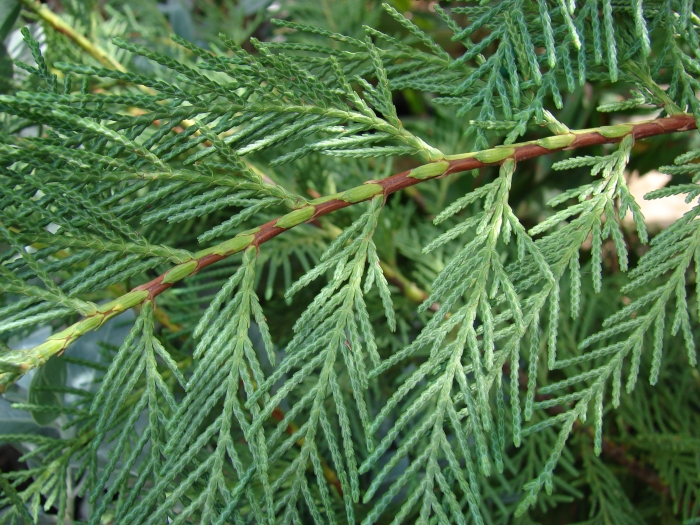Leyland Cypress
(Cupressus leylandii)
Leyland Cypress (Cupressus leylandii)
/
/

Forest & Kim Starr
CC BY 3.0
Image By:
Forest & Kim Starr
Recorded By:
Copyright:
CC BY 3.0
Copyright Notice:
Photo by: Forest & Kim Starr | License Type: CC BY 3.0 | License URL: https://creativecommons.org/licenses/by/3.0 | Uploader: BotMultichillT | Publisher: Wikimedia Commons | Title: Starr_080117-2021_Cupressus_×_leylandii.jpg | Notes: Uploaded a work by sonnia hill from https://www.flickr.com/photos/18453498@N07/49632005797/ with UploadWizard |


























Estimated Native Range
Summary
Cupressus leylandii, commonly known as Leyland cypress, is a fast-growing evergreen tree, a hybrid between Monterey cypress (Cupressus macrocarpa) and Nootka cypress (Cupressus nootkatensis). It is native to neither parent’s natural habitat but thrives in a variety of temperate climates. Typically, Leyland cypress can achieve heights of up to 49 feet (15 meters) within 16 years, with some specimens reaching even greater heights under optimal conditions. Its dense, feathery foliage is dark green and remains so throughout the year, making it an excellent choice for privacy screens and hedges.
Leyland cypress is valued for its rapid growth and dense foliage, which make it ideal for creating quick privacy barriers and windbreaks. It is also used in urban settings for noise reduction. While it can tolerate a range of soil types, it prefers well-drained soils and full sun to part shade conditions. Overwatering or poor drainage can lead to root rot. It is important to space plants properly to avoid overcrowding and to reduce the risk of disease spread. Leyland cypress is almost always sterile and is propagated mainly by cuttings.CC BY-SA 4.0
Leyland cypress is valued for its rapid growth and dense foliage, which make it ideal for creating quick privacy barriers and windbreaks. It is also used in urban settings for noise reduction. While it can tolerate a range of soil types, it prefers well-drained soils and full sun to part shade conditions. Overwatering or poor drainage can lead to root rot. It is important to space plants properly to avoid overcrowding and to reduce the risk of disease spread. Leyland cypress is almost always sterile and is propagated mainly by cuttings.CC BY-SA 4.0
Plant Description
- Plant Type: Tree
- Height: 60-70 feet
- Width: 10-15 feet
- Growth Rate: Rapid
- Flower Color: N/A
- Flowering Season: Non-Flowering
- Leaf Retention: Evergreen
Growth Requirements
- Sun: Full Sun
- Water: Medium
- Drainage: Medium
Common Uses
Hedges, Low Maintenance
Natural Habitat
Thrives in a variety of temperate climates, with dense, feathery, dark green foliage, and is valued for rapid growth and dense foliage ideal for privacy barriers and windbreaks
Other Names
Common Names: Leylandii
Scientific Names: Cupressus leylandii
GBIF Accepted Name: